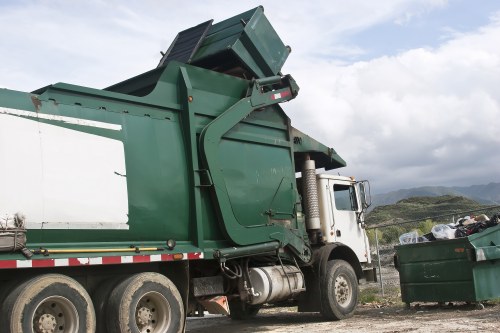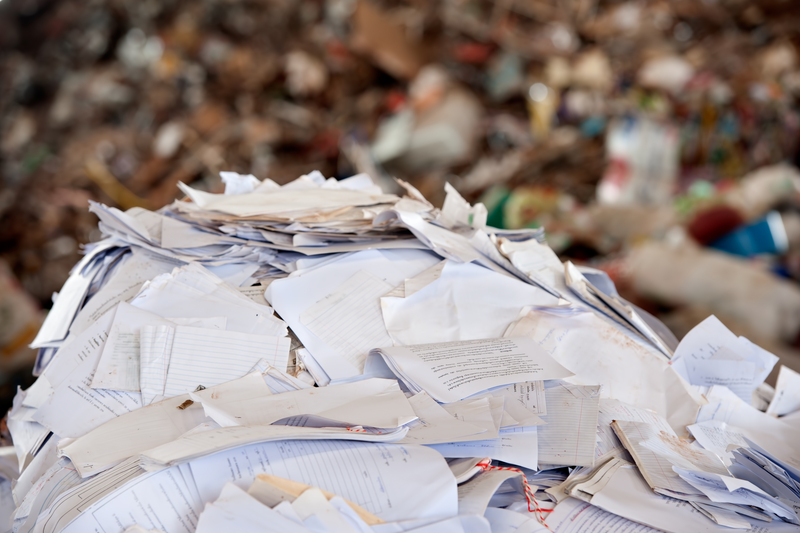Waste Removal in Rubbish Removals
Understanding Waste Removal

Waste removal is a critical component of maintaining a clean and healthy environment. It involves the collection, transport, and disposal of various types of waste generated by households, businesses, and industries. Effective waste removal not only helps in managing the waste produced but also plays a significant role in reducing pollution and conserving resources.
The process of waste removal encompasses several stages, including the segregation of waste, transportation to recycling or disposal facilities, and the final processing or disposal. Proper waste management ensures that hazardous materials are handled safely and that recyclable materials are efficiently processed to minimize environmental impact.
In the context of rubbish removals, waste removal services cater to both residential and commercial clients, offering tailored solutions based on the specific needs of each customer. Whether it's a one-time clean-up or regular waste collection, professional rubbish removals ensure that waste is managed responsibly and sustainably.
The Importance of Efficient Waste Removal

Efficient waste removal is essential for several reasons. Firstly, it helps in maintaining public health by preventing the accumulation of waste, which can attract pests and create breeding grounds for harmful bacteria. Proper waste management reduces the risk of disease outbreaks and promotes a healthier living environment.
Secondly, effective waste removal contributes to environmental conservation. By recycling and properly disposing of waste, we can reduce the depletion of natural resources and minimize the environmental footprint. Recycling materials like paper, glass, and plastics not only conserves resources but also reduces the energy required to produce new materials.
Additionally, efficient waste removal supports sustainable development. As communities grow and urbanize, the amount of waste generated increases. Implementing robust waste management systems ensures that this growth is managed sustainably, balancing economic development with environmental protection.
Types of Waste Managed by Rubbish Removal Services

Rubbish removal services handle a wide variety of waste types, each requiring specific handling and disposal methods. Here are the primary categories:
- Household Waste: This includes everyday items like food scraps, paper products, packaging materials, and broken household items.
- Commercial Waste: Businesses generate waste such as office paper, packaging, food waste from restaurants, and electronic waste.
- Construction and Demolition Waste: This category covers materials like concrete, bricks, wood, metals, and other debris resulting from construction or demolition activities.
- Hazardous Waste: Includes materials that are dangerous to human health or the environment, such as chemicals, batteries, medical waste, and electronic waste.
- Recyclable Materials: Items that can be processed and reused, including plastics, glass, metals, and paper.
Best Practices in Waste Removal

Implementing best practices in waste removal is essential for maximizing efficiency and minimizing environmental impact. Here are some key practices:
- Segregation: Separating waste at the source into categories like recyclables, non-recyclables, and hazardous materials simplifies the recycling and disposal processes.
- Recycling: Prioritizing the recycling of materials reduces the need for raw resources and lowers the overall waste volume.
- Proper Disposal: Ensuring that waste is disposed of in appropriate facilities prevents environmental contamination and health hazards.
- Regular Collection: Scheduled waste removal services prevent the accumulation of waste and maintain cleanliness.
- Public Education: Informing the community about effective waste management practices encourages responsible disposal and recycling.
Technologies Enhancing Waste Removal

Advancements in technology have significantly improved waste removal processes. Some of the key technologies include:
- Automated Sorting Systems: These systems enhance the efficiency of segregating recyclables from non-recyclables, increasing the recovery of valuable materials.
- GPS Fleet Management: Utilizing GPS technology helps in optimizing collection routes, reducing fuel consumption, and improving service schedules.
- Waste-to-Energy Plants: These facilities convert non-recyclable waste into energy, providing a sustainable solution for waste disposal.
- Smart Bins: Equipped with sensors, smart bins monitor waste levels in real-time, enabling timely collection and reducing overflow incidents.
- Advanced Recycling Techniques: Innovations in recycling processes allow for the efficient recovery and processing of a broader range of materials.
Environmental Impact of Effective Waste Removal

Effective waste removal has a profound positive impact on the environment. It helps in reducing greenhouse gas emissions by minimizing the amount of waste sent to landfills, where decomposition releases methane, a potent greenhouse gas. Additionally, recycling and reusing materials conserve natural resources and reduce the energy consumption associated with producing new products.
Proper waste management also protects ecosystems by preventing pollutants from entering soil and water bodies, thereby preserving biodiversity and maintaining the balance of natural habitats. Sustainable waste removal practices contribute to cleaner air and water, promoting overall environmental health.
Furthermore, responsible waste removal supports the principles of a circular economy, where materials are continuously reused, and waste is minimized. This approach fosters sustainable economic growth while reducing the environmental burden of waste.
Challenges in Waste Removal

Despite advancements, waste removal faces several challenges:
- Increasing Waste Generation: Population growth and urbanization lead to higher volumes of waste, straining existing waste management systems.
- Lack of Infrastructure: Inadequate waste management infrastructure in many regions hampers efficient waste collection and processing.
- Contamination of Recyclables: Improper segregation of waste leads to contamination, reducing the effectiveness of recycling programs.
- Financial Constraints: Funding waste management initiatives can be challenging, especially in developing areas.
- Public Awareness: Limited awareness and participation in waste reduction and recycling efforts hinder progress.
Future of Waste Removal

The future of waste removal lies in innovation and sustainability. Emerging trends include the adoption of circular economy principles, where waste is viewed as a resource, and the focus is on minimizing waste generation through design and consumption changes.
Technological advancements, such as artificial intelligence and machine learning, are set to revolutionize waste management by optimizing sorting processes and predicting waste generation patterns. Additionally, increased investment in waste-to-energy technologies will provide sustainable energy sources while managing waste effectively.
Policy and regulatory frameworks will play a crucial role in shaping the future of waste removal. Governments and organizations are increasingly implementing stringent waste management regulations and promoting sustainable practices to ensure environmental protection and resource conservation.
Choosing the Right Rubbish Removal Service

Selecting a reliable rubbish removal service is vital for effective waste management. Here are some factors to consider:
- Reputation: Look for services with positive reviews and a track record of reliable performance.
- Services Offered: Ensure the service covers the types of waste you need to remove, whether it's household, commercial, or hazardous waste.
- Environmental Practices: Choose companies that prioritize recycling and sustainable disposal methods.
- Pricing: Compare pricing structures to find a service that fits your budget without compromising on quality.
- Customer Support: Good customer service ensures that your concerns are addressed promptly and effectively.
Conclusion

Waste removal is an indispensable aspect of maintaining a clean, healthy, and sustainable environment. Effective rubbish removals not only manage the waste generated but also contribute to environmental conservation and public health. By adopting best practices, leveraging technology, and overcoming challenges, waste removal services can play a pivotal role in building a sustainable future.
Choosing the right rubbish removal service and actively participating in responsible waste management practices are essential steps towards a cleaner and greener planet. Contact us today to learn more about our waste removal solutions and how we can help you manage your waste efficiently.
Frequently Asked Questions
- Comprehensive Guide to Rubbish Removal Services in Lambeth
- Efficient Rubbish Removal Solutions in Osidge
- Effective Rubbish Removal Solutions in Coombe
- Essential Insights into Rubbish Removal Services in Downham
- Comprehensive Rubbish Removal Services in Eltham
- Comprehensive Rubbish Removal Services in Peckham
- Comprehensive Rubbish Removal Services in Barnet
- Comprehensive Rubbish Removal Services in South Wimbledon
- Efficient Waste Management Services in Elmers End
- Comprehensive Rubbish Removal Solutions in Cricklewood
- Top Rubbish Removal Services in Downe
- Comprehensive Rubbish Removal Services in Aldwych
- Essential Guide to Rubbish Removal in Parsons Green
- Efficient and Reliable Rubbish Removal Services in Hayes